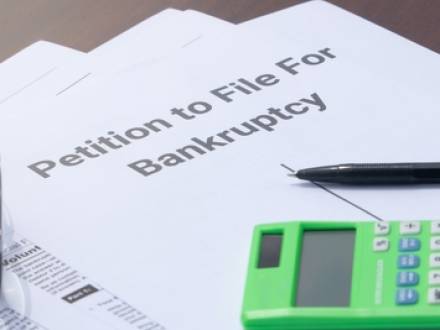When a Defendant Flees and a Bail Cosigner Files for Bankruptcy
 Suppose your spouse has been arrested, and the court has set a bond for him or her. You are willing to take financial responsibility to get your spouse out of jail, so you cosign the bond and put up a percentage of the bail amount (typically 10 percent). In most cases, arrangements like this work out well; however, what if your spouse fails to appear in court as required and flees the jurisdiction?
Suppose your spouse has been arrested, and the court has set a bond for him or her. You are willing to take financial responsibility to get your spouse out of jail, so you cosign the bond and put up a percentage of the bail amount (typically 10 percent). In most cases, arrangements like this work out well; however, what if your spouse fails to appear in court as required and flees the jurisdiction?
Typically, you, as the cosigner, would be responsible for the entire bail amount. This could potentially amount to hundreds of thousands of dollars. Can you file for bankruptcy to avoid paying the full bail amount? There is no doubt about it; this is a complicated situation. Questions regarding bond forfeiture, the liability of cosigners, and whether bankruptcy shields a cosigner from the consequences are all at issue.
Anyone considering cosigning a bond should have a thorough understanding of the intersection between Texas bail law and bankruptcy law. Working with an experienced McKinney, TX bail bondsman from Doc's Bail Bonds will ensure that all your questions are fully answered. We are one of the largest and oldest bail bond companies in North Texas and will work hard to help you find other solutions than bankruptcy.
What Are the Responsibilities of a Cosigner in a Texas Bail Bond?
Cosigning a Texas bail bond involves significant financial and legal responsibilities. The cosigner agrees to ensure that the defendant appears for all court hearings. If the defendant "skips bail" and fails to appear or violates other bail conditions, the cosigner becomes liable for the full bail amount.
Other risks for the cosigner include a negative impact on credit and possible legal action from the bail bond company. In Texas, a cosigner’s liability typically lasts until the case concludes or the bond is exonerated. In rare cases, a cosigner can request to be removed from a bond by notifying the bail bond company if he or she believes the defendant may pose a flight risk.
Can a Bail Cosigner File for Bankruptcy?
Generally speaking, a cosigner could file for Chapter 7 bankruptcy, assuming he or she meets all other requirements for bankruptcy. Again, theoretically, the cosigner’s obligation to the bail bond company would be treated like any other unsecured debt. However, this is hardly the end of the issue. First, many cosigners pledge collateral, such as a home or car, when the bail bond is high.
If collateral was pledged, the bond company can seize that collateral, despite the bankruptcy. Second, if the bail bond can prove that there was intentional misrepresentation by the cosigner, bankruptcy discharge may be blocked. If the bail bond was taken out within 90 days of filing for bankruptcy, and it can be shown that the cosigner had no intention of paying it back, the debt may be deemed fraudulent, therefore, not discharged in bankruptcy.
If the bankruptcy being filed for is Chapter 13 rather than Chapter 7, then a provision known as a co-debtor stay can temporarily halt collection efforts against cosigners. However, this offers only temporary relief. The cosigner typically remains liable for the debt after the bankruptcy is concluded or when the stay is lifted.
And finally, cosigners should be aware that bail bond companies can file a civil lawsuit against a cosigner who is attempting to evade liability through bankruptcy. A bail bond company can initiate a civil lawsuit to recover unpaid bail bond debts and can pursue asset seizure to recover the funds owed on unpaid bail bond debts.
Contact a McKinney County, TX Bail Bondsman
It is always a good idea to carefully consider being a cosigner for a bond. Even if you are cosigning for a loved one, make sure he or she plans to honor all bond requirements. Choosing a Denton County, TX bail bondsman from Doc's Bail Bonds is the best step you can take in this situation. Doc knows how to build a strong team as a result of his experience managing a professional baseball team. Call 214-747-4110 to speak to a knowledgeable Texas bail bondsman.










